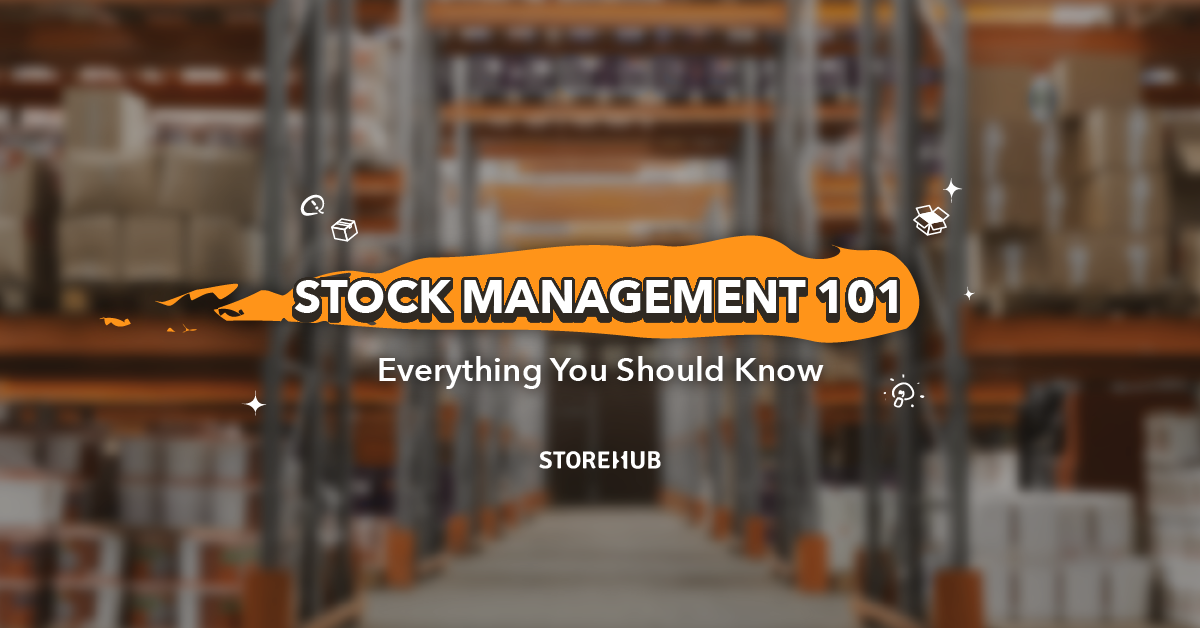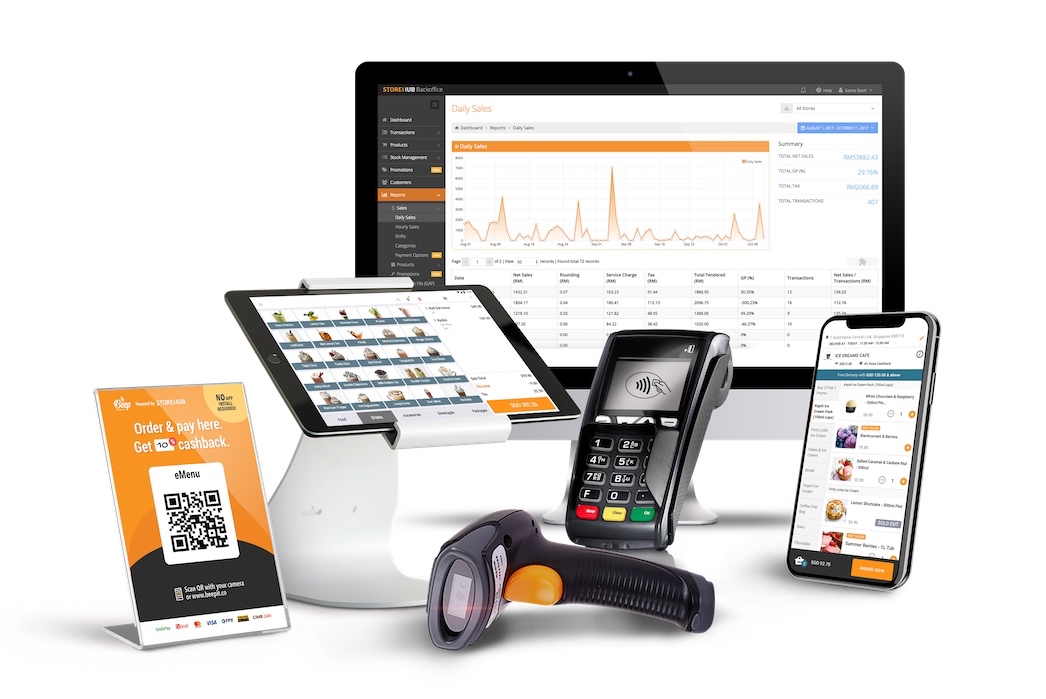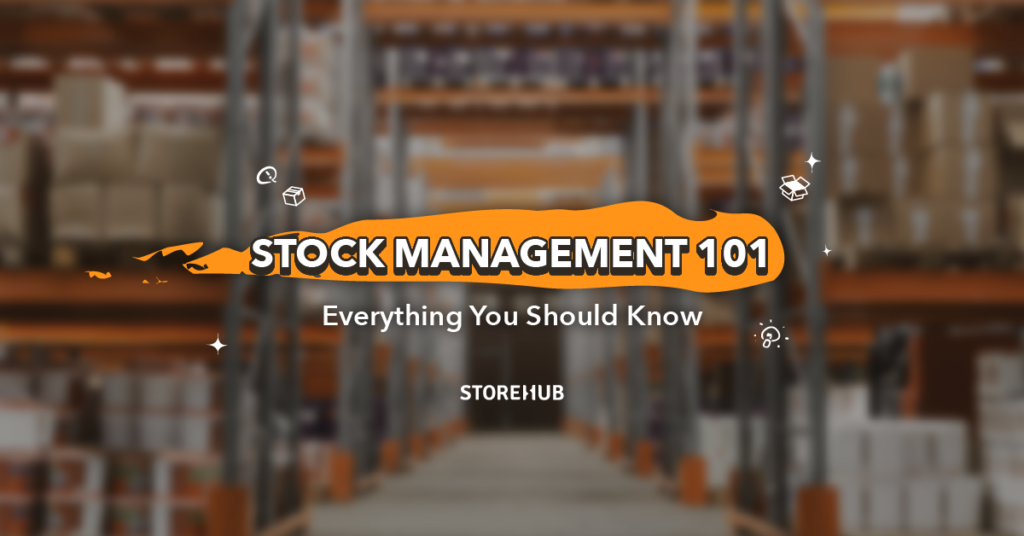
Stock Management 101: How To Manage Your Inventory
Stock management is one of the most important things determining the success of your business.
Stock management applies to every item a business uses to produce its products or services – from raw materials to finished goods. In other words, stock management covers every aspect of your business inventory.
There are many things to consider when it comes to stock:
- Do you have the right products in stock?
- How do you know when your stock levels are low?
- Have you ever run out of stock and lost sales as a result?
- Are you losing money due to an excess of stock?
If you aren’t managing your inventory effectively and holding up a lot of extra stock, it ties up a lot of cash.
That’s why good stock management is crucial.
Want to know how?
Don’t worry!
We will discuss the importance of stock management, some key things to look out for and finally, some top tips for good stock management!
This guide will cover:
- What is stock management?
- Why is stock management important?
- Ways to categorise your stock
- How to effectively manage your stock
What is stock management?

Photo by Craig Adderley from Pexels
Stock management (AKA inventory management or stock control) involves ordering, storing, tracking and monitoring stock levels.
It applies to every item that your business uses to produce its products from raw materials to finished goods.
The aim of is to have the right amount of stock for sale at all times. Good stock management can help business owners know when its time to reorder materials and minimise cost at the same time.
Why is stock management important?

There are two main reasons why stock management is important:
1. Improves business cashflow
Good stock management is important because stock is a business asset that ties up cashflow.
Stock is an asset that your business would have already paid for. If you aren’t selling it and getting cash back, it’s just sitting in your warehouse taking up space and not being turned into cash for your business to use.
By managing stock effectively, it will allow the business to free up cashflow to be used in other aspects of business operations.
This is why stock management is very important for cash flow management.
To be efficient, you should be able to track how much stock you currently have, when you’ll run out based on forecasted sales and when to replace stock. Doing this will ensure that you have more cash set aside that isn’t tied up in stock.
So remember, better stock management leads to an improvement in cashflow!
2. Saves you money
Another important reason for efficient stock management is that it cuts costs for your business.
Your business should be able to accurately predict and forecast the demands of your product. This is essential for making sure that you have enough stock to meet customer demand.
With effective stock management, you can avoid situations where you lose money from products being out of stock or when too much money is spent on excess stock that is taking up space in the warehouse.
Stock management also helps saves you money by avoiding product spoilage. If your business is selling products that are perishable and has an expiry date (e.g. food, drinks or makeup), then it can go bad if not sold on time.
You will lose money from these spoiled products as they cannot be sold anymore.
You can also avoid losing money on dead stock, which are products that cannot be sold because it has gone out of season, style or has become irrelevant.
In short, good stock management saves you tons of money!
Ways to categorise your stock

There are 4 main types of stock that your business could use
- Raw materials – components that are ready to be used when producing goods
- Work in progress – unfinished goods that are still in the production process
- Finished goods – final products that are ready to sell
- Consumables – items that are used daily for the running of business operations e.g. fuel, stationary etc.
It is important to divide your stock into categories so it’s easier to organise and keep track of what needs replacement.
You can also rank the categories in order of value to fund the most important one first when you are limited on cashflow.
How to manage stock effectively

Now that you know the importance of good stock management, how do you do it? We have a few top tips here to help you out!
1. Set minimum stock levels
The first crucial thing to do is to set “minimum stock levels” for each of your products. This is the lowest amount that must be in stock at all times so when the number goes below this predetermined level, you know that it’s time to order more!
The minimum stock level varies for different products and it depends on your business and the demand for your products.
In order to make the right pre-determined level, you should do some research and make the decision in regards to what’s the best level for your business.
Take note that overtime, conditions may change so remember to keep updating and checking the level a few times throughout the year to take into account any changes.
2. First In, First Out (FIFO)
‘FIFO’ is a stock management rule that many businesses follow. It means that stocks acquired first (first-in) should get sold first (first-out). This is very useful, especially for perishable goods, so stocks don’t end up being spoilt, worn out or obsolete.
To effectively put this system in place, you should place your new products at the back and make sure your existing products stay in the front for easy access.
3. Having a good relationship with your supplier
Good stock management requires your business to be able to adapt quickly if there are any changes. As a small business, things change quickly on a day to day basis and there could be challenges that get in the way which requires last-minute restocking or fast delivery.
Maintaining a strong relationship with your supplier will help you out in the long run. They will be more willing to help solve any restocking problems, send you higher quality products, negotiate minimum order quantities and potentially lower prices.
To have a good supplier relationship, you need clear two-way communication. Let suppliers know whenever something is expected to change (perhaps an unexpected increase in sales) so they can adjust their productions accordingly.
In return, they should also be letting you know if a delivery is running behind schedule so that you can take measures to prepare for the lack of stock.
Try to avoid telling them last minute, if possible, as that just adds extra pressure and tension on both parties.
4. Have a contingency plan
A contingency plan is often used for risk management to prepare for possible future scenarios or events.
There are many issues that can arise related to stock management:
- An unexpected increase in sales and you run out of stock
- Running out of storage room
- Miscalculating inventory which leads to having not enough products to sell
- Lack of cash flow to pay for stocks
- Supplier runs out of stock and you have orders to fulfil
- Late delivery of stock
It’s hard to predict when these problems will come around, so it’s safer to prepare for potential risks ahead of time.
Think about how you will react, what steps need to be taken to solve the problem and how to minimise the impact on other areas of your business operations.
Having a pre-planned response strategy will save you time and money when a crisis does occur.
5. The importance of accurate forecasting
The most crucial part and the backbone of stock management comes down to accurately forecasting demand.
You do not want to have too much stock, but you also don’t want to have too little. This is very hard to do as there are so many factors that could get in the way.
You can never get an exact match, but you should try to get as close as possible.
These are a few things you should take into account when predicting demand accurately:
- Market trends
- Compare it with sales during the same time last year
- Yearly growth rate
- Seasonal factors
- Economy
- Upcoming promotions
- Advertising and marketing spend
- Political factors
- Social trends
- Technological trends
6. Quality control is everything
Always remember to check the quality of your stock! This could be as simple as having your staff do a quick quality check during stock audits to look for any signs of damage.
Also, double-check your products to see if they are correctly labelled to prevent any mistakes being made during the monitoring and tracking of stock.
7. Use a cloud-based stock management software
With so many management software available now, look for one that provides you with real-time sales and stock analytics. This means that you can access the data as it happens, anytime and anywhere.
StoreHub’s stock management software allows you to this.
Not only that, but it connects directly to your POS system, so whenever you make a sale, the appropriate level of stock is deducted from your existing stock data.
You will also receive daily stock reports at the end of each day, and get automatic messages whenever you are low on stock. What’s even better is that you can set the minimum level of stock, and StoreHub’s software will automatically send a request to your supplier to order more of that particular stock for you.
With StoreHub, you will be able to:
- Reduce cost and improve cash flow
- Keep track of your stock in real-time
- Access your stock data and analyse it on any device, at any time and anywhere
- Forecast demand accurately to help with inventory planning
- Avoid product shortages
- Prevent excess storage of stock
- Connect directly with your point-of-sale system
- Track and monitor stock quickly with barcode scanning and special SKU (stock-keeping units) for each individual item
- Manage and transfer stocks in multiple locations
Now you’ve got the basics, take control of your inventory now!
Inventory is the company’s greatest asset, so you need to secure the asset and nurture it in the right direction to save money and make money.
You’ll never get ahead without introducing inventory management strategies.
Sign up with StoreHub for stock management that masters inventory management fundamentals. For a sustainable business, the fundamentals are important.
Key features of StoreHub’s stock management system:
- Add inventory/increase stock
- Audit trail
- Enable ‘fixed supplier price’
- Perform a stock take
- Perform a stock transfer
- Receive stock
- Return stock (using stock return)
For your business growth, software should be a catalyst, not a hindrance.
Power your business with StoreHub





